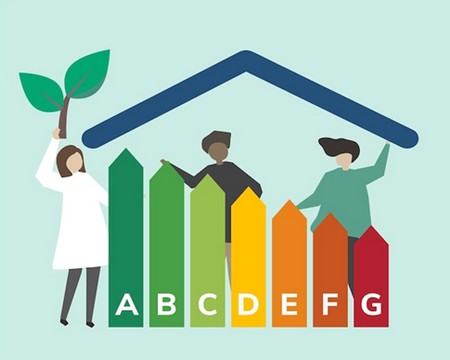Energy efficiency and energy savings strategies
The National Technical University of Athens has adopted a comprehensive strategy to reduce energy consumption and promote sustainability in its facilities. These interventions focus on improving the energy efficiency of buildings, the utilization of renewable energy sources and raising awareness among the university community.
One of the key steps towards energy saving is the gradual upgrading of university buildings, with the aim of reducing energy losses and improving their overall efficiency. In this context, measures such as thermal insulation additions, replacing opening’s frames with energy-efficient materials and installing LED lighting systems are being implemented, to reduce electricity consumption. In addition, the Technical University implements policies for the rational use of energy, such as regular energy inspection and the implementation of automated energy management systems.
NTUA integrates modern technologies to reduce energy consumption. Several buildings have been equipped with smart lighting systems, which allow the intensity to be adjusted as needed, as well as heating and cooling management units that optimize energy consumption. An important innovation is also the utilization of shallow geothermal systems for the heating and cooling of the facilities, as well as the application of solar thermal technologies to meet hot water needs.

The central objective of the National Technical University of Athens is the gradual reduction of its dependence on conventional forms of energy, with renewable sources. Thus, photovoltaic systems are installed in the institution’s facilities, contributing to the production of clean energy, while hybrid systems are also developed that combine different forms of energy, reducing overall pollutant emissions.
An equally important element of the Polytechnic University’s strategy is to inform and educate the academic community about energy efficiency and sustainability principles. Students have the opportunity to attend special courses and seminars on energy management, while events and workshops are organized on green development and new technologies in the energy sector. At the same time, through participation in research programs, students are encouraged to develop innovative solutions and applications for energy saving and reducing the environmental footprint of buildings.



